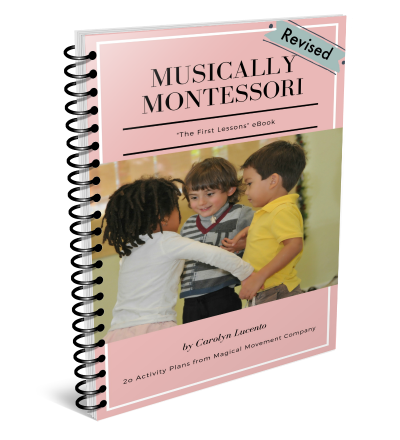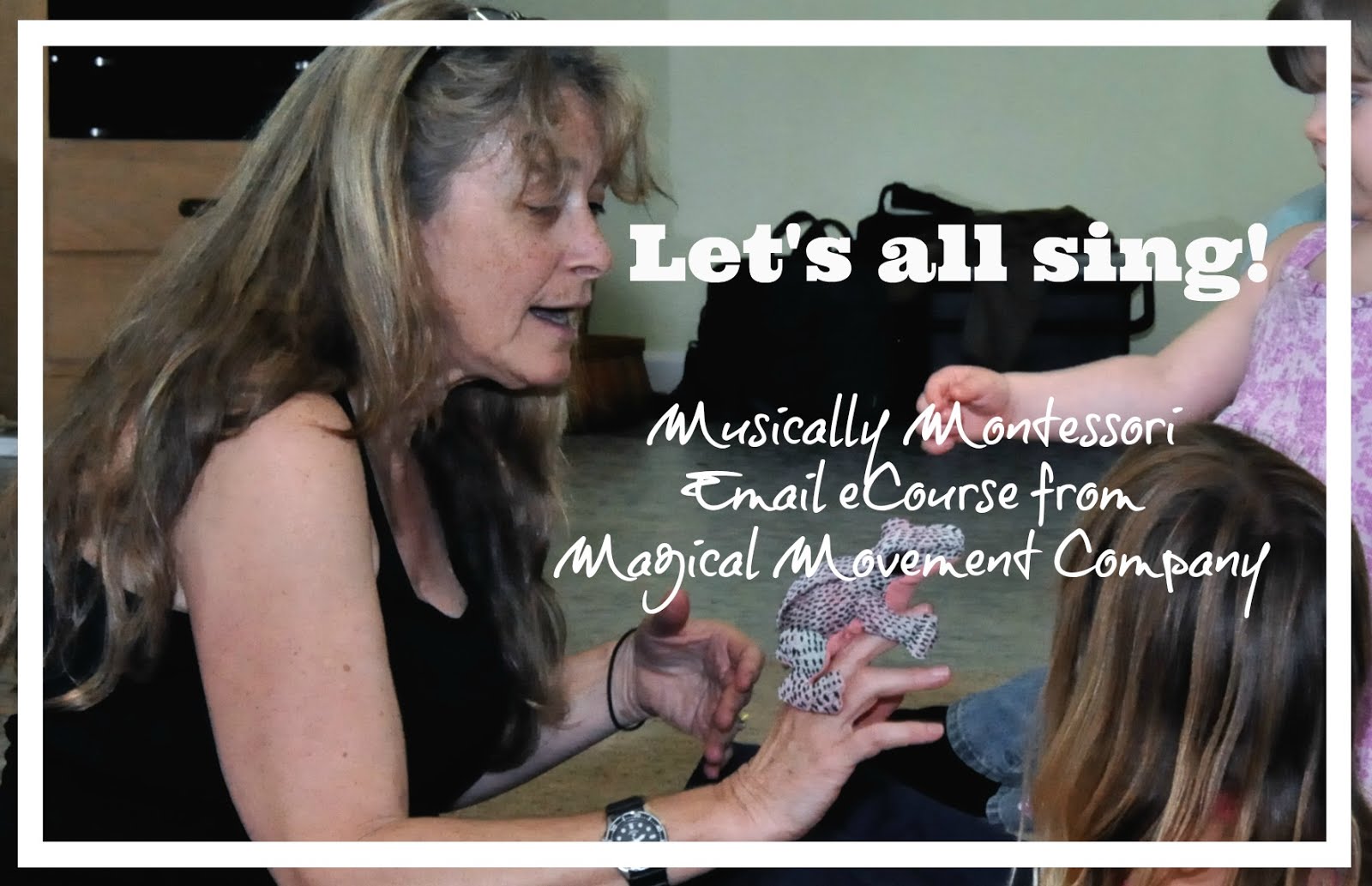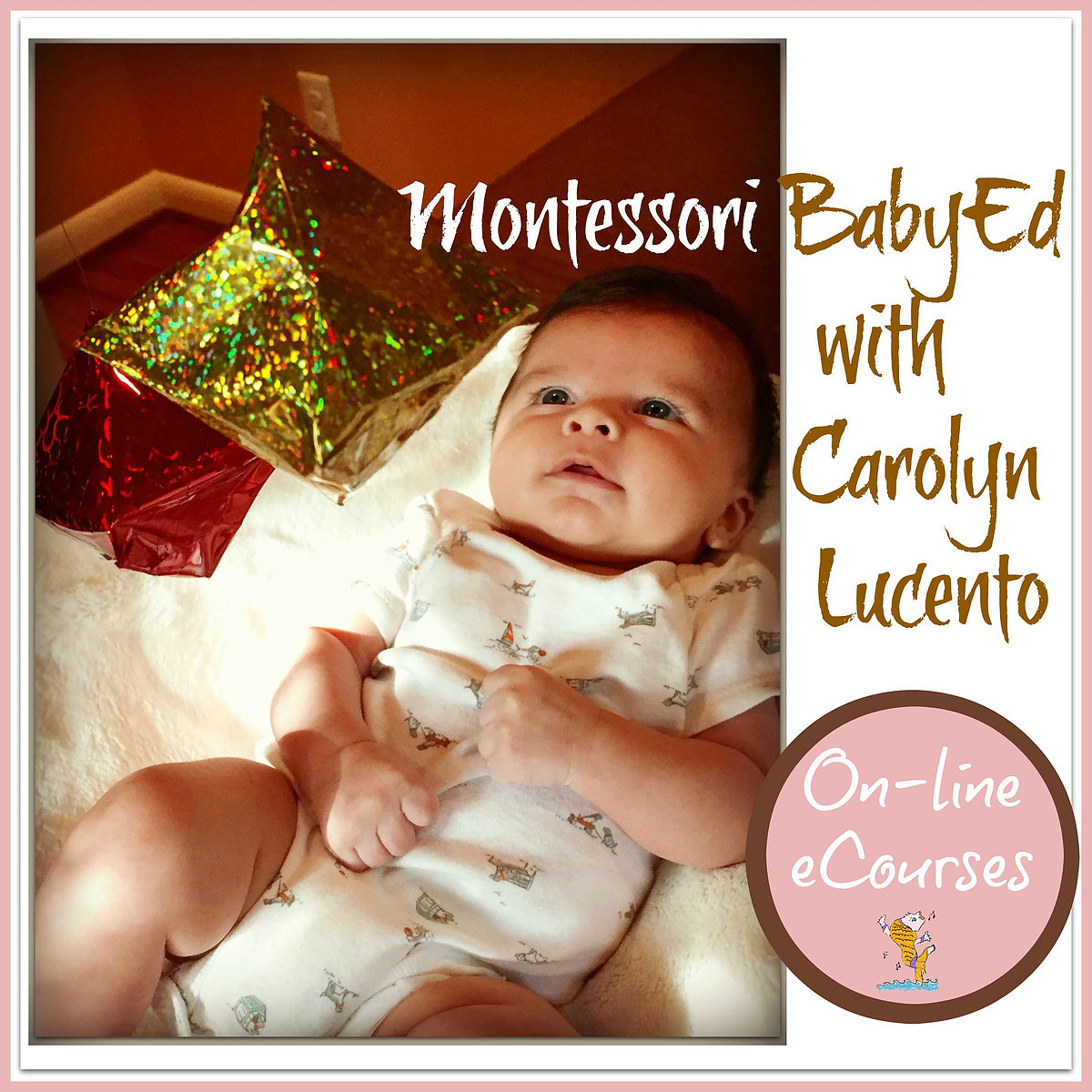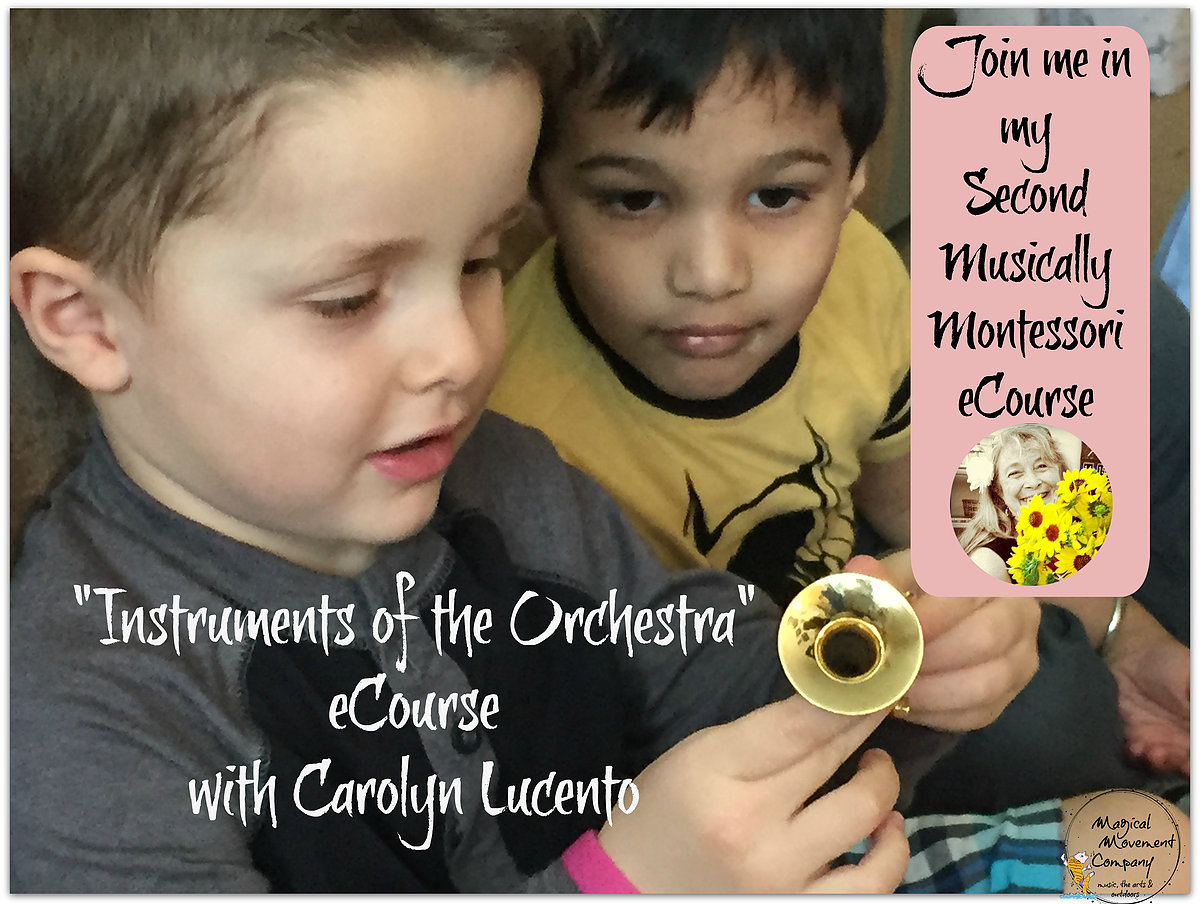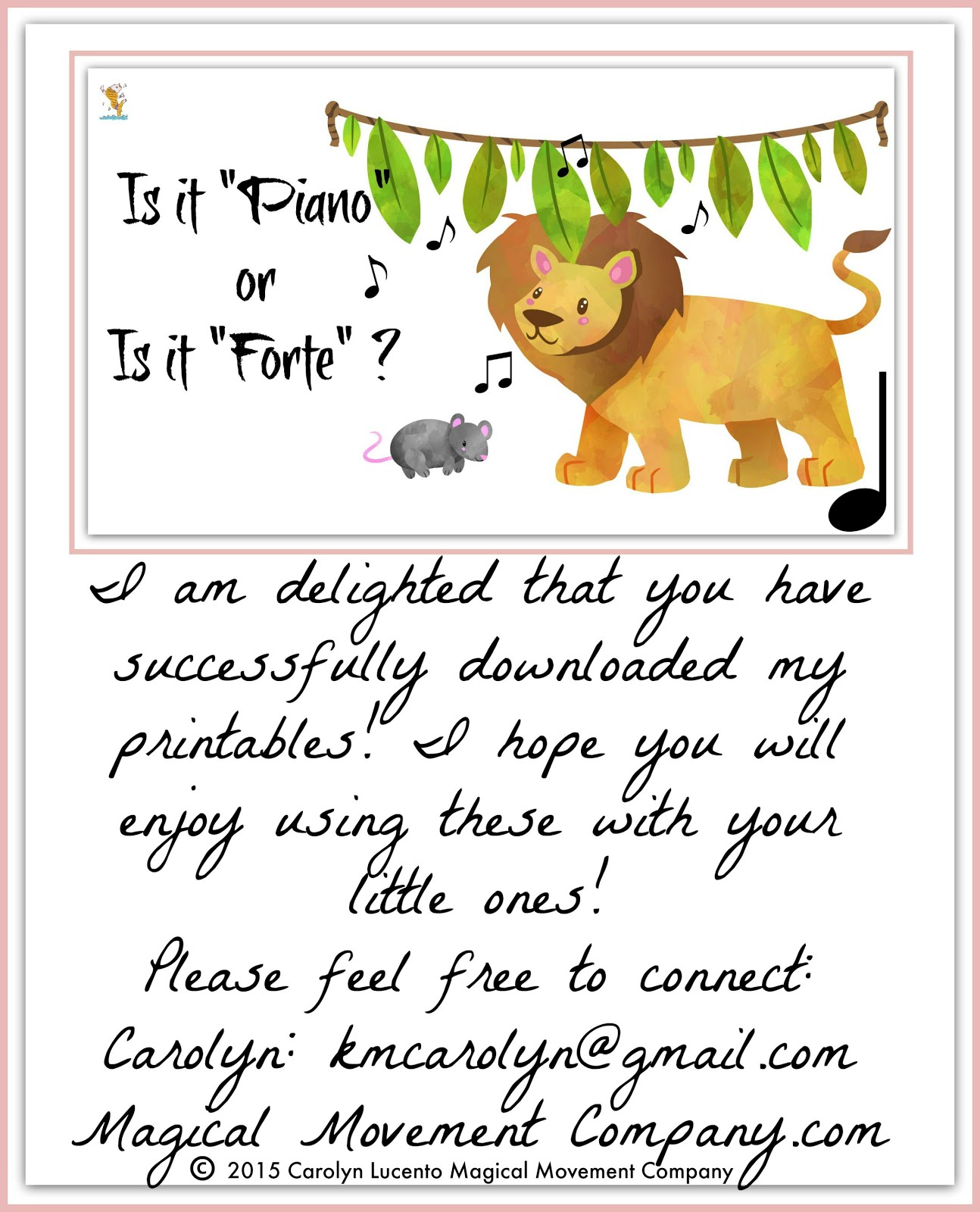All photos by Jeri-Jo Idarius Photography for Magical Movement Company
If you are creating a rationale for lots of music experiences for the young child's environment, here is our collection from my recent A.M.S. Montessori Music Workshop with eight intern teachers from the MIAS Training Program in the
San Francisco Bay Area.
Making music is universal.
Music effects people regardless of age, gender, culture, country, intellectual skills, or physical abilities. If you can't understand the words, you can enjoy the melody! All groups of humanity make music for everyday occurrences as well as special occasions. How many times have you heard a little child humming while s/he works on a project? And, children all over the world create songs for playing games together.
Making music helps children develop
social skills.
The "social group" is one of the configurations where people make music, and these activities often require organizing, negotiating, and participating considerately. How satisfying when we accomplish this as a group. Smiling faces show us!
Making music helps children develop reading skills.
Give a child a copy of some sheet music, and before you know it, s/he will be noticing the lines, squiggles, and of course, the words & symbols throughout the piece. Picture books in a child's environment that are actually renditions of songs, like Twinkle, Twinkle, and It's Raining, It's Pouring, are easily "read" by the child at a young age. And, music notation (the written language of music) is universal...the same everywhere!
Making music helps children develop writing skills.
Playing rhythm instruments requires the small muscles in the hand to perform the same motions used in writing. What a delightful way for young children to strengthen the muscles required to eventually write their names (and maybe write music someday!) Here's a great article of mine on little children writing music: Little Children's Music Notation.
Making music helps children develop listening skills.
A quality early music program incorporates focused listening activities. These not only awaken the child to the components of the music, but they also work to lengthen the child's attention span and ability to listen attentively. Dr Montessori wrote about the child's sensitive period for auditory development: "The development of speech takes place between the ages of two and five, the age of perception, in which the attention of the child is spontaneously turned towards external objects and his memory is particularly tenacious... At this period of life, because of the mysterious bond that links the auditory and motor channels of spoken language, it seems that auditory perceptions have (great) power..." (The Discovery of the Child, 1967, p. 246)
Making music helps children develop a sense of community.
A musical experience involving a group accentuates so many important skills. Not only are children shown how they each fit in, they are also developing the ability to help others, and move in unison. It's all about the connection!
Making music helps children develop memory skills.
So much of music is based on patterns: rhythmic, melodic, and linguistic. The patterning and the rhyming never fail to delight children while at the same time, building the memory center of the brain!
Making music helps children develop
self confidence.
When early music experiences are based on developmentally appropriate practices: hands-on, step-by-step progression, with lots of repetition and movement, the child senses that wonderful feeling of success! The 5 year old in the photo above was proudly showing her rhythm instrument booklet she had completed after actually having played all the instruments featured in her booklet.
Music helps children develop creative, imaginative thinking skills.
Early childhood songs about elephants & mice, trains & planes, and even rain & wind, all stimulate the imagination and are lovely ways to incorporate learning about the elemental concepts in music. These songs not only lend themselves to dramatizing little stories, they also help children to feel the dynamics (loud & quiet) or the tempo (fast & slow) along with pitch, and of course, the steady beat of the music.
Making music helps children
express emotions.
How many times have we put on some music so we can rejuvenate our spirits, or celebrate our happiness, or even honor our sorrow? Music is known the world over as a tonic for a broken heart, as a way to sooth a crying baby, and as a wonderful physical exercise to let it all out! Most seasoned early childhood educators are very knowledgeable about this secret benefit of music experiences in the young child's environment.
Making music helps children develop body coordination.
Children have so much fun playing instruments, which, by the way requires eye-hand coordination along with large & small motor skills. Combining the playing of music, with dancing and singing...that requires lots of coordinating of skills all at the same time! The underlying pulse of the music makes it occur almost effortlessly.
Making music helps children develop
self control.
Practicing stopping, all beginning at the same time, playing loudly, quietly, fast & slow...all these parts of an everyday music class for the young child...build those important skills of inhibitory control. As we all know, these skills are not only important to play music, they are also very important for normal development in early childhood. Impulse control is part of growing up, so why not give children lots of fun experiences that challenge them in appropriate ways. The 4 year old in the photo above is practicing walking on the Montessori Line carrying a small tray with a glass of water. We decided to add the challenge of playing music that had clear stopping places in which the child is to "freeze." Of course, she loved it!
NOW, FOR THE TOPPER!
If you haven't already viewed this fantastic video, I think you're going to like what you learn! Anita Collins explores how playing an instrument benefits your brain.
Making music helps children develop a healthy, well-developed brain.
Also, I've just UPDATED MY WEBSITE and you'll find lots of resources (and reasons for music!) by exploring the pages there. Here's the link: Magical Movement Company.
It is always a pleasure to have you visit my blog! I would love to hear your ideas...WHAT are YOUR REASONS why young children need to make music? You can leave comments at my Facebook Page here: Magical Movement Company & Kids FB Page.
This post is part of the Montessori Monday Link-up at Deb Chitwood's site, Living Montessori Now. You'll find dozens of articles from Montessori educators worldwide. Here's the link: Montessori Monday.
If you are an admirer of young children, the arts, music, and the outdoor classroom, you might like to subscribe for my updates. You'll get my blog articles (and more!) delivered straight to your inbox.
PLUS, for a bit longer, I am offering you my eBOOK, Musically Montessori: The First Lessons as a FREE GIFT for joining my email list.
CLICK HERE TO VIEW AT MY TPT STORE:
Subscribe by filling out the form on the sidebar of this blog.
SUBSCRIBE TO MY MAILING LIST
Advertising Disclosure: Magical Movement Company may be compensated in exchange for featured placement of certain sponsored products and services, or your clicking on links posted on this website. Thanks for your support!

















